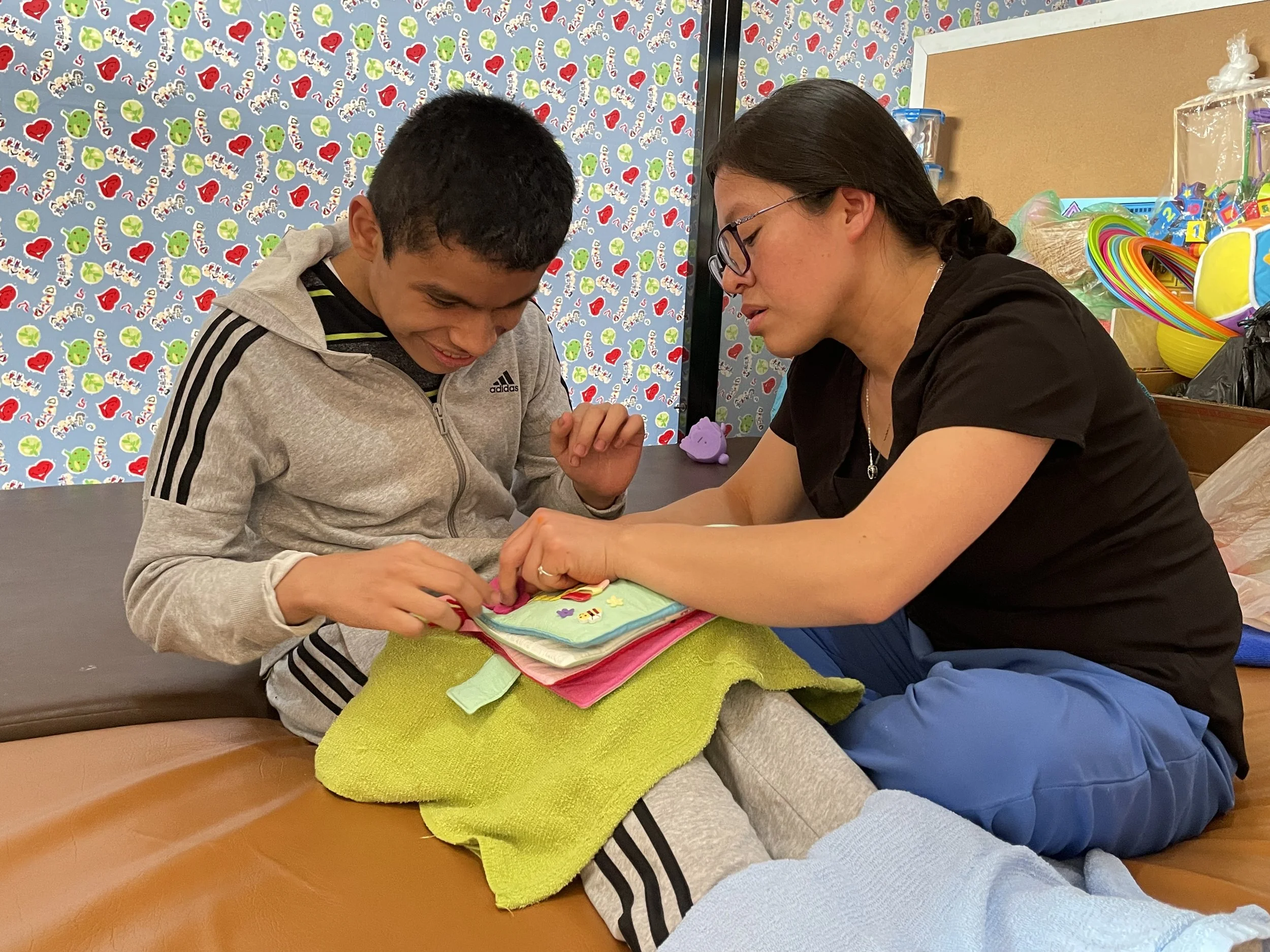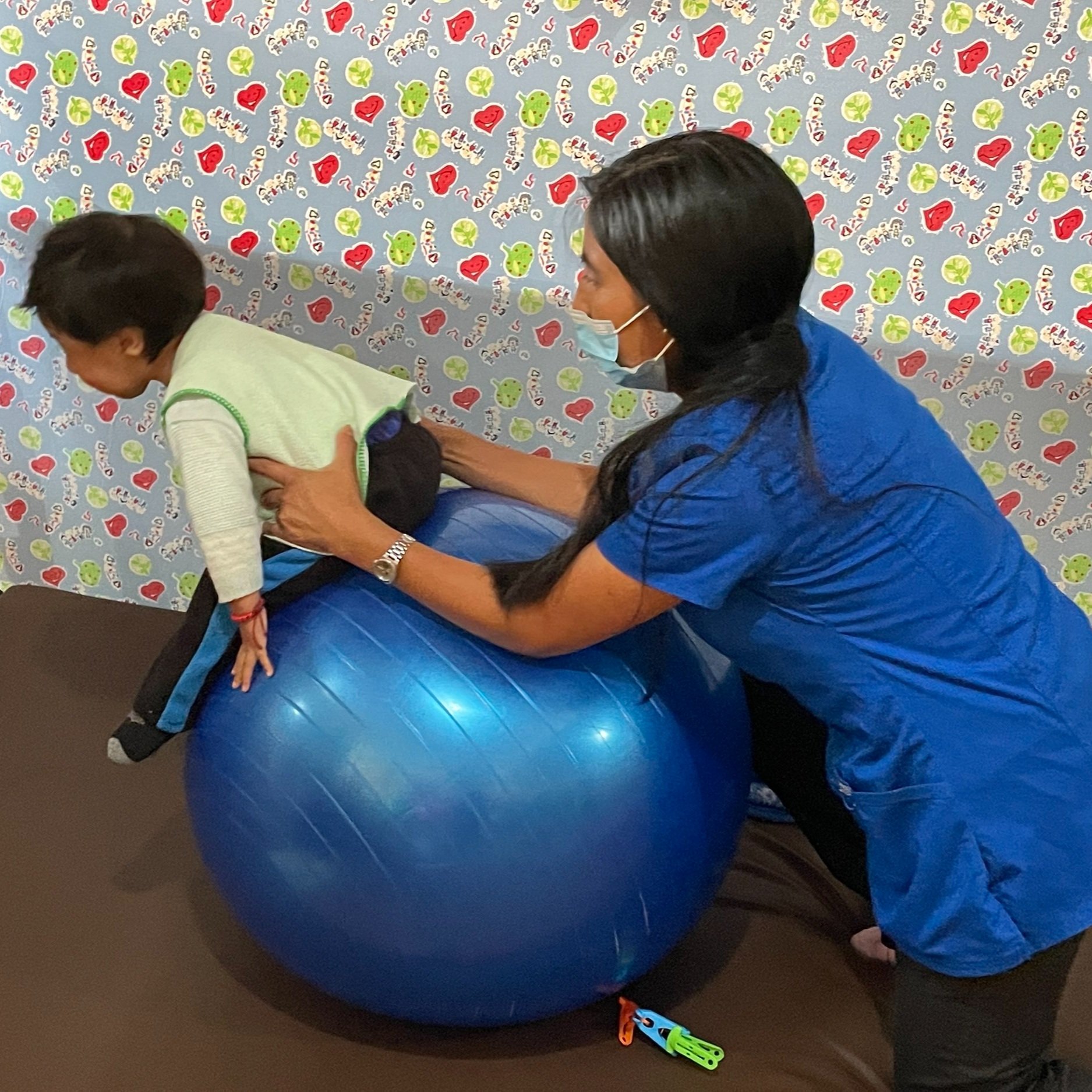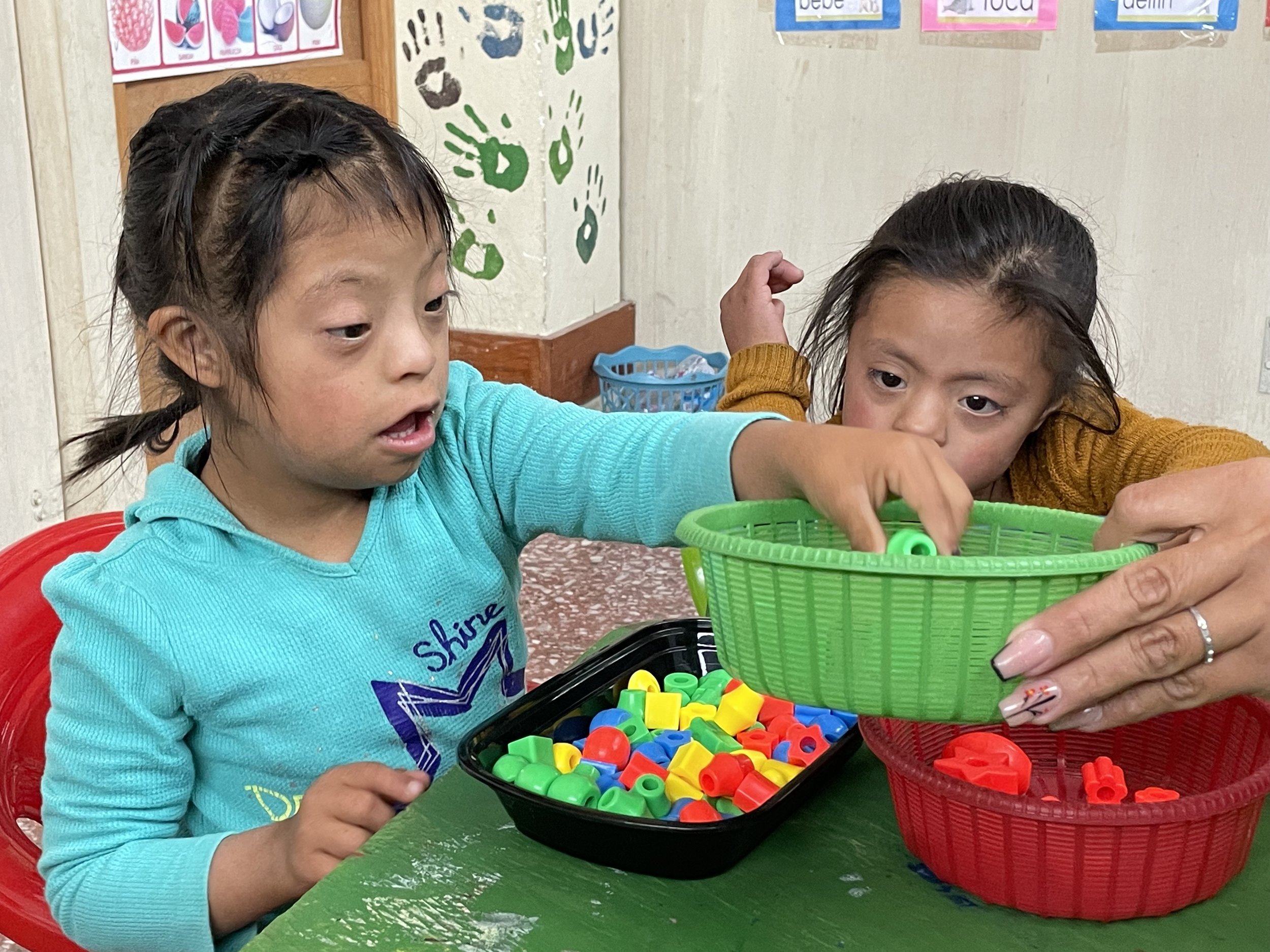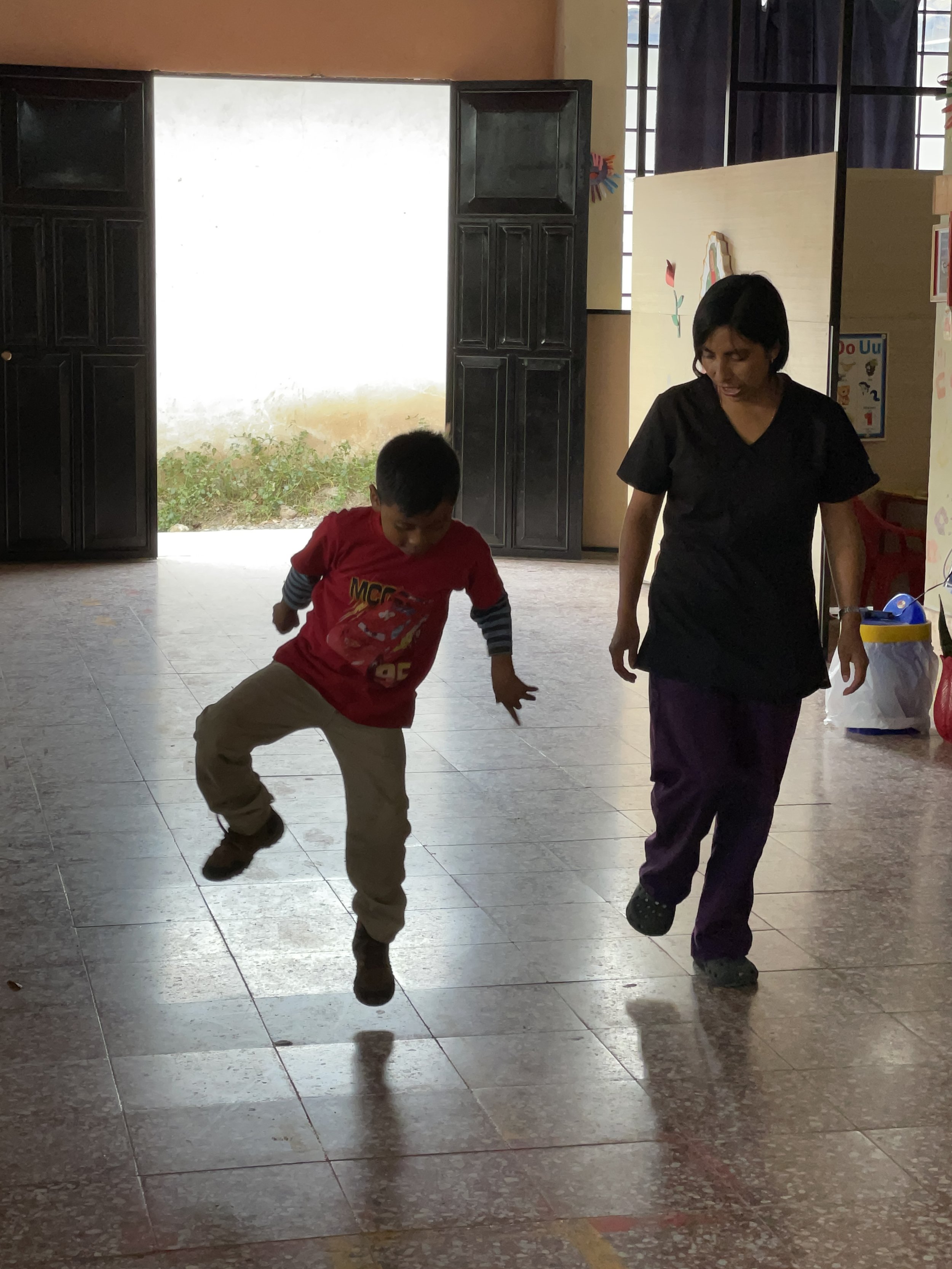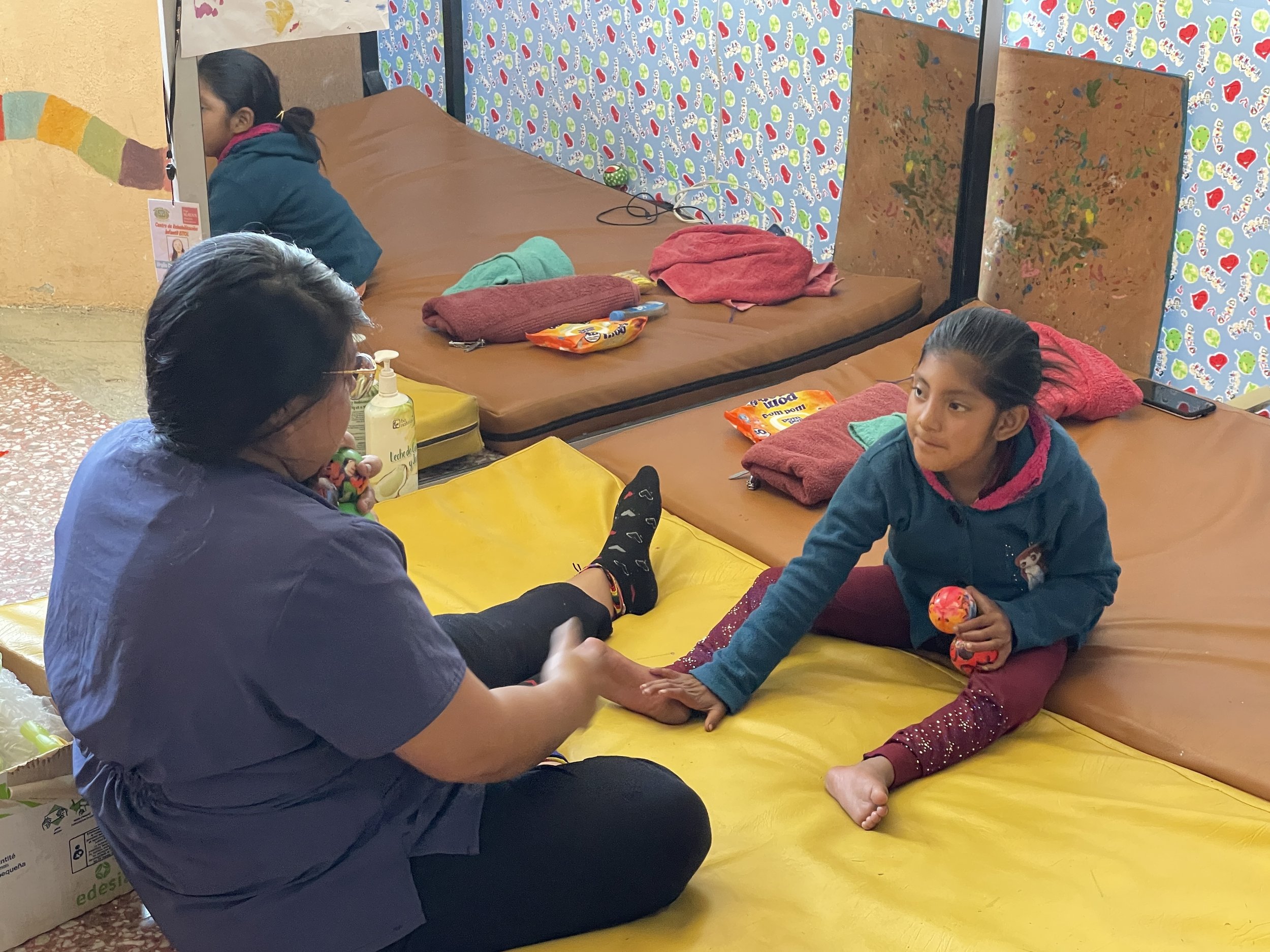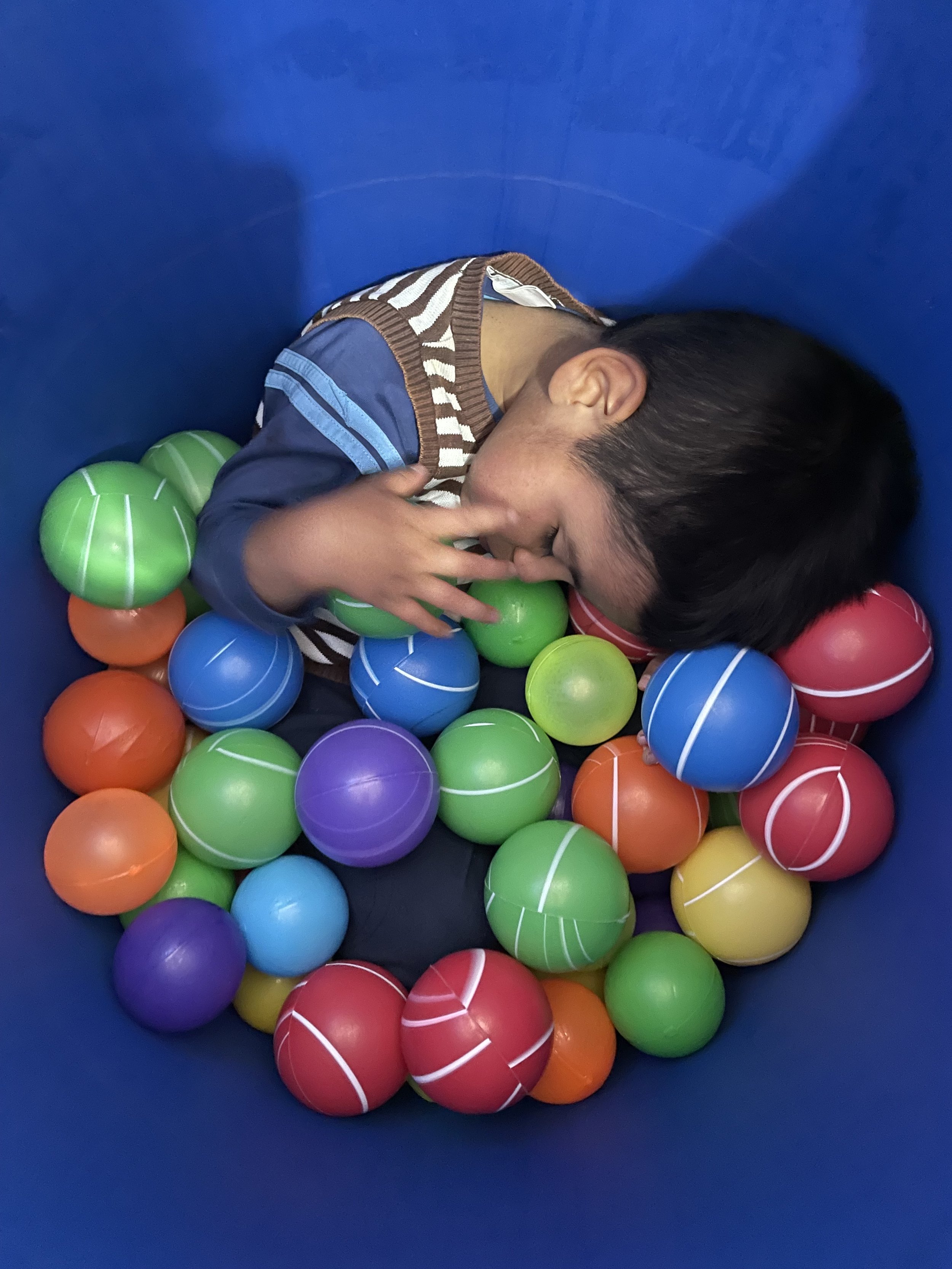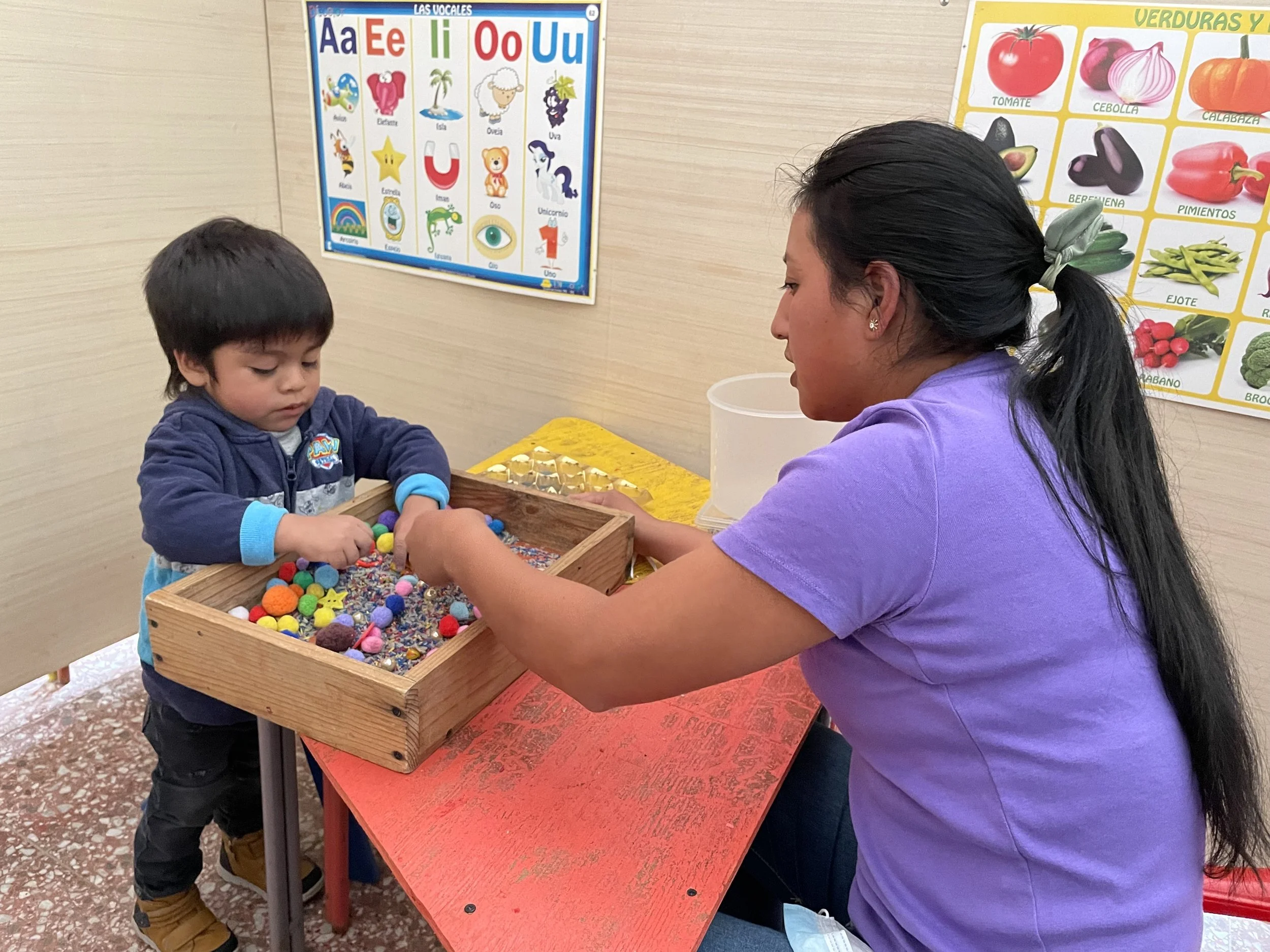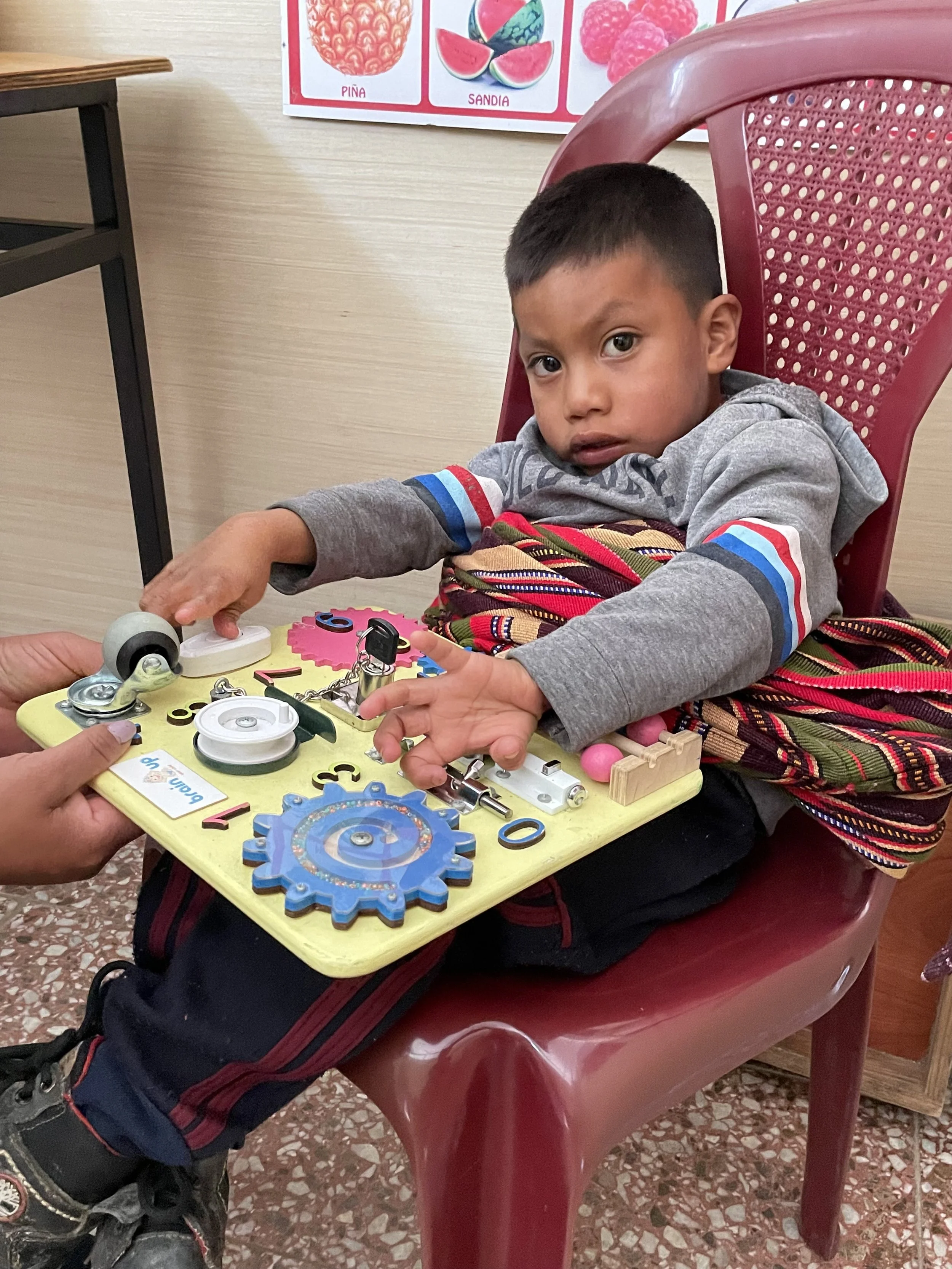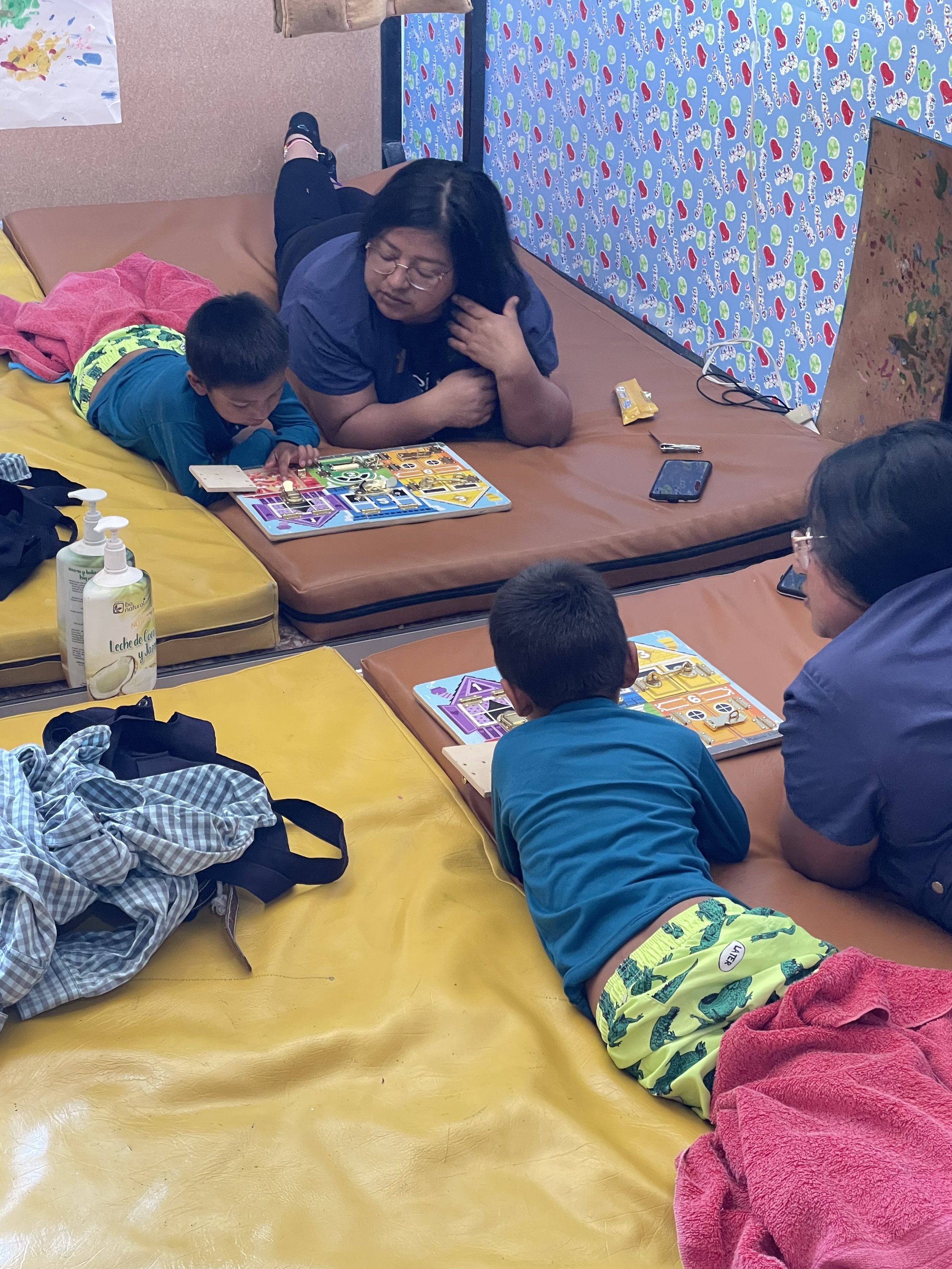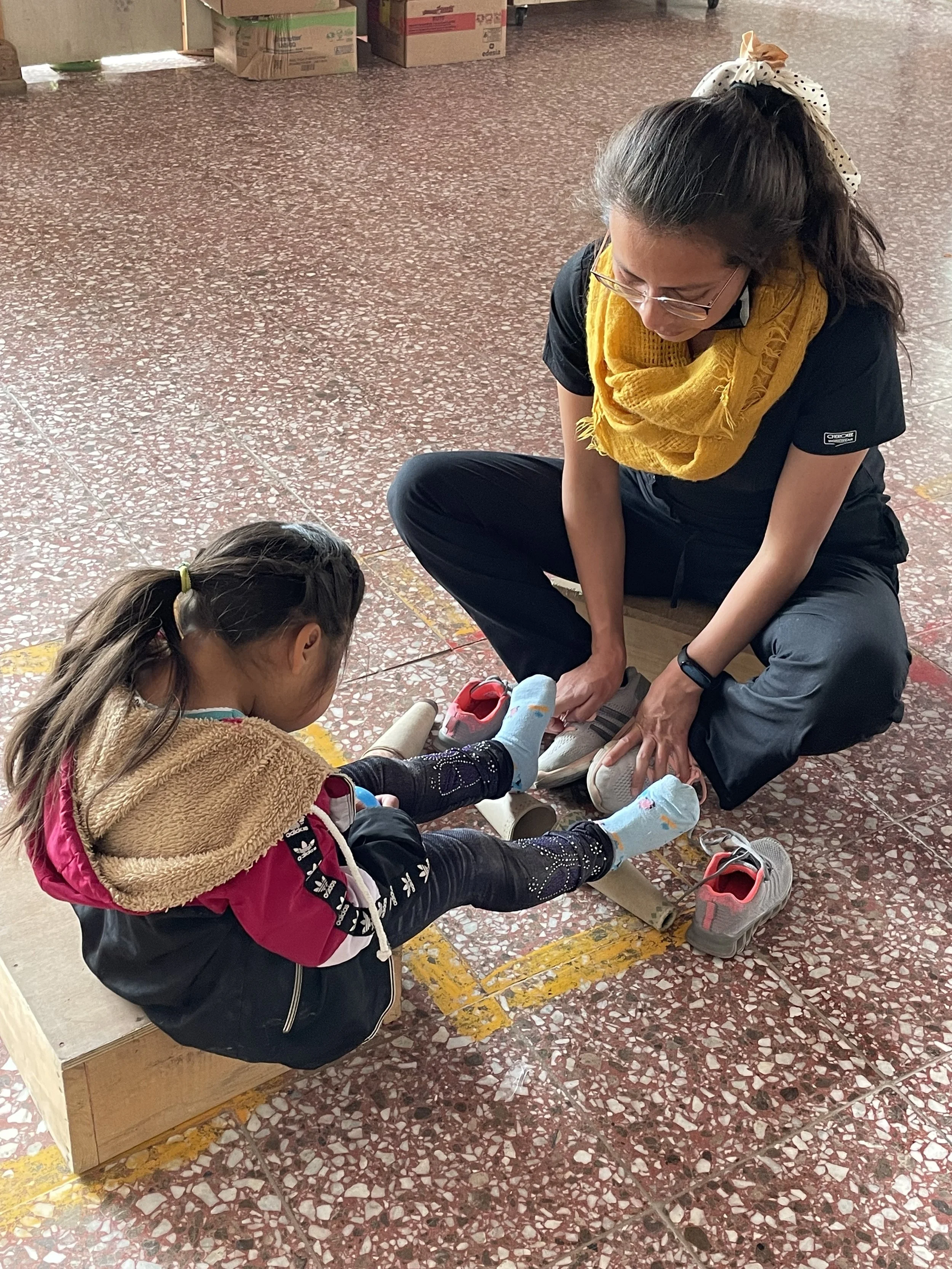We provide a lifeline of rehabilitation and
support services for children with special needs.
Approximately 14 percent of the country's population has some kind of disability. In the western highlands most of the cases of disabilities are due to cerebral palsy and undiagnosed congenital disorders. In Guatemala, a disability is often seen as a punishment from God and parents are often reluctant to seek treatment.
The needs of children with disabilities demand highly skilled therapies to improve their quality of life and develop their potential. Children with cerebral palsy suffer from spasticity, scoliosis, difficulties sitting still or moving around or have seizures. In addition, many have learning disabilities due to visual, hearing and speech impediments. Children with disabilities may need crutches, braces, or a wheel chair to move around and improve mobility. They are also at risk for malnutrition and many have dental decay.
Although the country has program for children with disabilities in Guatemala city, these services do not reach the children in the rural and remote areas of the western highlands. Families find it difficult to take their children for services due to constraints related to work, transportation, and education. The country’s topography keeps the indigenous people living in rural areas isolated from the urban areas closer to the city, making it more difficult for them to receive help. Moreover, the families we serve do not have the financial resources to fund these services.
In 2014 MHI established two physical therapy centers to serve the communities of San José Ojetenam and San Miguel Ixtahuacan, Tacana and Comitancillo, municipalities in the western highlands. The centers offer physical therapy, and speech and occupational therapy. The smaller center in San Jose treats 50 families, the center in San Miguel 190, The center in Tacana, functions in partnership with the local parish and an Italy-NGO called Hermana Tierra, and currently serves 40 families.
In addition, all centers coordinate the care of children with special surgical needs, including complex cardiac and orthopedic problems, and cleft lips and palates. Several children have received sight saving cataract surgery, and several surgery for hernias. To achieve this MHI works with groups of visiting surgeons, as well as with resources available locally via Guatemalan ophthalmologists and surgeons. MHI provides logistical and financial support to families that allow them to access these services, and provides followup care and treatment.
The head and coodinator of the therapy program is Elizabeth Barrios, who has the equivalent of a PhD in special education. She is now supervising a team of 7 therapists. Due to the work and dedication of the therapists, the centers have become a place where families have formed a community where they can feel comfortable among each other.
As the centers become better known, MHI’s most pressing challenge is an increase in patient demand as families are traveling from other municipalities for the support we provide.

